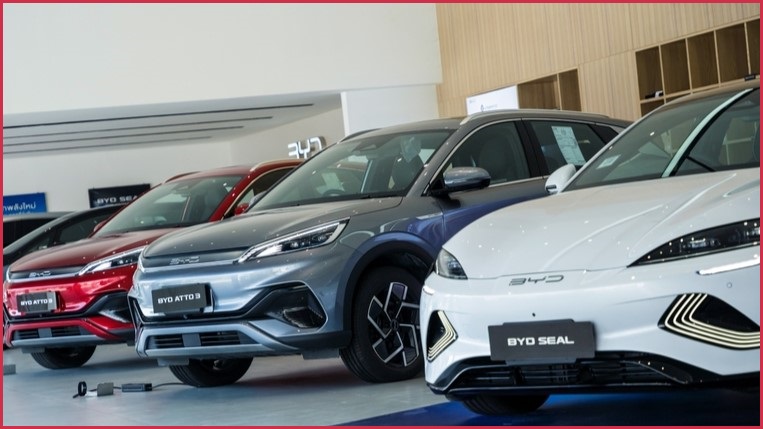The US government is preparing to ban Chinese software and hardware from cars driving on American roads over cyber and national security concerns.
Reuters reported on Monday, citing two sources, that the US Commerce Department would unveil the planned ban this week, which will take effect by 2030.
It will apply to China-made software and hardware in new connected and autonomous vehicles in the US.
It’s understood the ban will come into effect for software used in cars in 2027 and for hardware from the start of 2029 or the following year.
The US government has previously raised concerns with the presence of Chinese software and hardware in cars on American roads, particularly around the prospect of certain technology being disabled or vehicles even being “piloted or disabled remotely”.
Most new cars sold in the US are considered to be “connected”, meaning they have hardware capable of accessing the internet and sharing data with devices inside and outside of the car.
The ban would apply to the importation and sale of vehicles from China with communications or automated driving system software or hardware, Reuters reported.
Vehicles with certain Bluetooth, satellite and wireless features, and autonomous driving capabilities.
Avoiding a ‘catastrophic outcome’
The US government launched an investigation in February into whether cars and other vehicles imported and sold from China represent a national security risk due to the connected software and hardware installed in them, and whether they should be blocked from entering the country.
Last week, the US introduced a 100 per cent duty on electric cars from China.
US President Joe Biden had previously flagged a crackdown on this type of technology.
“China’s policies could flood our market with its vehicles, posing risks to our national security,” Biden said earlier this year.
“I’m not going to let that happen on my watch.”
The probe was also looking at whether these connected or autonomous cars could be “piloted or disabled remotely” using that technology, with Biden signalling “unprecedented action to ensure that cars on US roads from countries of concern like China do not undermine our national security”.
It is believed the proposed laws would also apply to cars from Russia.
US Commerce Secretary Gina Raimonda has raised concerns about security risks posed by the presence of this software and hardware.
“You can imagine the catastrophic outcome theoretically if you had a couple million cars on the road and the software was disabled,” Raimonda said in May.
According to the report, the US Commerce Department will give the public 30 days to comment on the planned ban before it is finalised.
A group representing automotive giants including General Motors, Toyota, Volkswagen and Hyundai have said that implementing such a ban and changing hardware and software would take a long time.
The group said that the systems within their cars “undergo extensive pre-production engineering, testing and validation processes and, in general, cannot be easily swapped with systems or components from a different supplier”.
Earlier this year, US Senator Sherrod Brown called for all electric vehicles manufactured in China to be banned, saying that they “threaten…economic and national security” and that they could “give China access to sensitive personal data”.
The tech war
It’s unclear whether Australia will follow in the footsteps of the US in enacting such a ban.
Numerous lower-cost China-manufacturer electric vehicles are now available in Australia, including from BYD and Great Wall Motors.
The imminent US ban is another effort by the US government to crack down on the prevalence of Chinese technology locally, based on national security concerns.
The US government this year passed legislation that will serve to ban social media app TikTok unless its Chinese parent company ByteDance divests it in America.
The Australian government has declined to follow the US on this issue, but has banned TikTok on all government-issued devices due to “significant protective security risk”.
Australia also banned Chinese telecommunications firm Huawei from being involved in the National Broadband Network several years ago.










